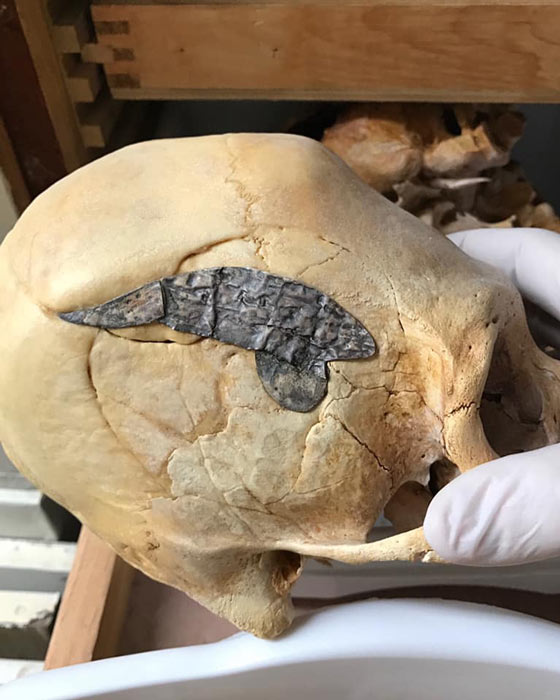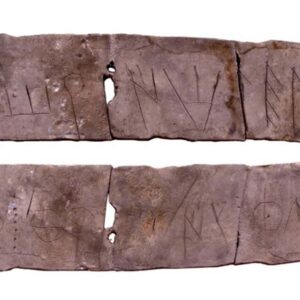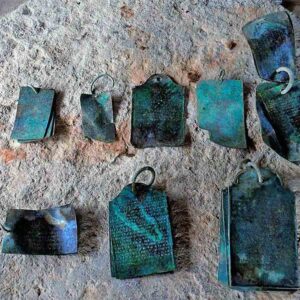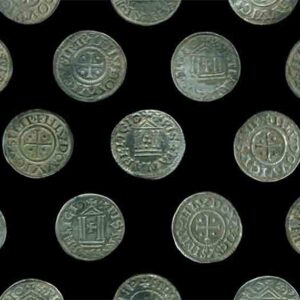Up to date
18 January, 2022 – 22:00
Cecilia Bogaard
2,000-12 months-Previous Peruvian Underwent Profitable Cranium Surgical procedure
- Learn Later
A cranium housed on the Museum of Osteology in Oklahoma is inflicting fairly a stir. The traditional elongated cranium, relationship again 2,000 years, as soon as belonged to a Peruvian warrior. After being injured throughout battle and struggling some harm to the pinnacle, cranium surgical procedure was carried out – utilizing metallic – making it a shocking instance of early superior surgical procedure.
Understanding the Historical past of Elongated Skulls in Peru
“We don’t have a ton of background on this piece,” confused the Museum of Osteology. Nonetheless, this specific cranium opens up a complete can of worms. First up is making an attempt to know why the cranium was elongated. “Elongation was achieved by head binding starting at a really younger age,” defined the Museum of Osteology once they introduced that the cranium was now on public show as a result of well-liked demand. “It was usually practiced to convey social standing by numerous cultures,” they continued.
“All through historical past, many cultures have artificially deformed the skulls of infants to be able to obtain a flattened or elongated form which was typically related to the ruling, or elite lessons,” defined Karen Mutton in an Historical Origins article. Proof of this sort of synthetic cranial deformation has been found inside the Americas, Australia, the Center East and Russia, amongst others.
- Historical Peru’s Cranial Surgeons Have been Twice as Expert as American Civil Struggle Docs
- Trepanation: The Oldest Evidenced Surgical procedure Nonetheless in Use Right now?
In terms of the so-called ‘Coneheads’ of Paracas, Peru, though some insist that they’re proof of aliens, their skulls have been almost definitely deformed by a strategy of head binding which researchers consider was carried out in infancy on high-ranking members of the inhabitants. “Deliberate head shaping is a type of cultural modification of the physique that marks various things, like one’s id, a ceremony of passage, (or) an occupation,” defined Melissa Murphy, an anthropology professor on the College of Wyoming in USA TODAY.

Historical skulls bearing proof of trepanation, a form of cranium surgical procedure by which a telltale gap was surgically minimize into the skull, proof for which may be present in Peru. (University of Miami)
One of many Oldest Surgical procedure Procedures within the World – Cranium Trepanation
In keeping with the Daily Star, the traditional cranium on show on the Museum of Osteology in Oklahoma is proof that historic Peruvians have been performing superior surgical procedure way back to 2,000 years in the past. Whereas this could be true, in truth, trepanation (identified additionally as trepanning, trephining, or making a burr gap), is a surgical process involving the drilling of a gap within the cranium of a residing individual, which truly goes again a lot additional.
Thought of to be one of many oldest surgical procedures on the planet, proof for trepanation is discovered as early because the Neolithic interval. Examples of this are discovered at websites all through the world, from Europe, historic Greece, Mesopotamia, China, Russia and all through the Inca Empire. In reality, National Geographic defined that “the process reached its apex in Peru between the 14th and sixteenth centuries AD.”
The targets of trepanation all through historical past have been numerous. From permitting blood to empty from the cranium after harm, as described by the traditional Greek doctor Hippocrates, to its use in Europe as a remedy for epilepsy and psychological sickness. Some have even advised that trepanation cranium surgical procedure was carried out for ritual functions.

The Oklahoma-based museum has an early Peruvian elongated cranium, which underwent cranium surgical procedure, as a part of its assortment. (Museum of Osteology)
Early Cranium Surgical procedure was Frequent in Peru
This instance appears to be completely different although, as a metallic has been used to seal the outlet within the head.
“Fractured skulls have been reportedly widespread accidents in battle as a result of weapons being primarily sling stones and bashing golf equipment,” highlighted the Daily Star. In keeping with anthropologist John Verano, creator of Holes within the Head: The Artwork and Archaeology of Trepanation in Historical Peru, who was interviewed for the article, for this reason “Peruvian surgeons turned specialists in treating them.”
The realm of the previous Inca Empire has grow to be a main website of curiosity for historians of trepanation because of the profusion of trepanned skulls found there, lots of which present indicators of healed bones which lead specialists to conclude that there was a excessive survival charge. “[Peru] has extra skulls with trepanations than all over the place else on the planet mixed,” defined Verano in an interview with National Geographic.
In terms of the two,000-year-old Peruvian warrior cranium in query, “the person survived the process, generally known as trepanation, primarily based on proof of bone reworking,” confused the Museum of Osteology. What makes this much more stunning is that this early cranium surgical procedure would have taken place with none anesthesia or different fashionable medical strategies!
Whereas it does present proof of early cranium surgical procedure, the Museum of Osteology cranium isn’t, because the Daily Mail claimed, “the world’s first cranium surgical procedure.” There’s proof of cranium surgical procedure from all through historical past. Historical Origins reported on one instance of cranium surgical procedure from way back to 7,000 years in the past in Sudan, making the Peruvian warrior cranium fairly latest by comparability.

Peruvian elongated cranium which underwent cranium surgical procedure and had metallic surgically implanted to bind the bones after being wounded in battle about 2,000 years in the past. (Museum of Osteology)
The Museum of Osteology Cranium Was Repaired Utilizing Metallic
The Peruvian elongated cranium is without doubt one of the “extra attention-grabbing and oldest items within the assortment” housed on the Museum of Osteology in Oklahoma, acknowledged the museum in a Facebook put up. One side which makes it stand out from the plethora of skulls on show is that the traditional Peruvian surgeons implanted metallic to assist bind the damaged bones, as may be seen by the darkish coronary heart/pepper-shaped type on the facet of the cranium.
- 7,000-12 months-Previous Head Surgical procedure: One of many Oldest Trepanned Skulls Found in Sudan
- Ritually Motivated Traditions Could Be Behind Holes Drilled into Skulls in Prehistoric Russia
The Oklahoma-based museum believes that the elongated cranium belonged to a Peruvian warrior, wounded in battle. Based mostly on evaluation of the bones, they concluded that the warrior survived the operation. “Based mostly on the damaged bone surrounding the restore and you’ll see that it’s tightly fused collectively. It was a profitable surgical procedure,” introduced the Museum of Osteology. The warrior had undergone cranium elongation at a younger age, which might imply that he was from the higher echelons of his society.
Questions have been requested associated to the form of metallic used for this operation, however the Museum has as but not carried out any evaluation to find out its precise composition. They declare that “historically, silver and gold was used for the sort of process.”
High picture: The elongated cranium of a Peruvian warrior who underwent cranium surgical procedure 2,000 years in the past. Supply: Museum of Osteology
By Cecilia Bogaard





